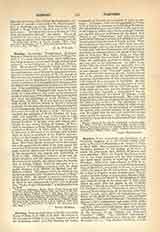

Fletcher, JOHN, missionary and theologian, b. at Ormskirk, England, of an old Catholic family; educated at Douai and afterwards at St. Gregory’s, Paris; d. about 1848. After ordination to the priesthood he became a professor at the College at St-Omer, of which his great-uncle, Rev. William Wilkinson, had been president. When the French Revolution broke out he was taken prisoner with the other collegians and spent many months in captivity at Arras and Dourlens. After they were released in 1795 he returned to England and acted as priest first at Hexham, then at Blackburn, and finally at Weston Underwood (1827), the seat of the Throckmortons. Having acted for a time as chaplain to the dowager Lady Throckmorton he took charge of Leamington Mission (1839-1844). He removed thence to Northampton in 1844 and resigned, owing to his great age, in 1848, after which his name does not appear in the “Catholic Directory”, though his death is not therein recorded. Dr. Fletcher’s works are: “Sermons on various Religious and Moral Subjects for all the Sundays after Pentecost” (2 vols., 1812,1821); the introduction is “An Essay on the Spirit of Controversy”, also published separately; “The Catholic‘s Manual”, translated from Bossuet with a commentary and notes (1817, 1829); “Thoughts on the Rights and Prerogatives of Church and State, with some observations upon the question of Catholic Securities” (1823); “A Comparative View of the Grounds of the Catholic and Protestant Churches” (1826); “The Catholic‘s Prayerbook”, compiled from a MS. drawn up in 1813 by Rev. Joseph Berington (q.v.); “The Prudent Christian; or Considerations on the Importance and Happiness of attending to the Care of Our Salvation” (1834); “The Guide to the True Religion” (1836); “Transubstantiation: a Letter to Lord” (1836); “On the Use of the Bible“; “The Letters of Fenelon, with illustrations” (1837); “A Short Historical View of the Rise, Progress and Establishment of the Anglican Church” (1843). He translated Blessed Edmund Campion’s “Decem Rationes” (1827); de Maistre’s “Letters on the Spanish Inquisition” (1838); and Fenelon’s “Reflections for Every Day of the Month” (1844). He also brought out an edition of “My Motives for Renouncing the Protestant Religion” by Antonio de Dominis (1828).
EDWIN BURTON

